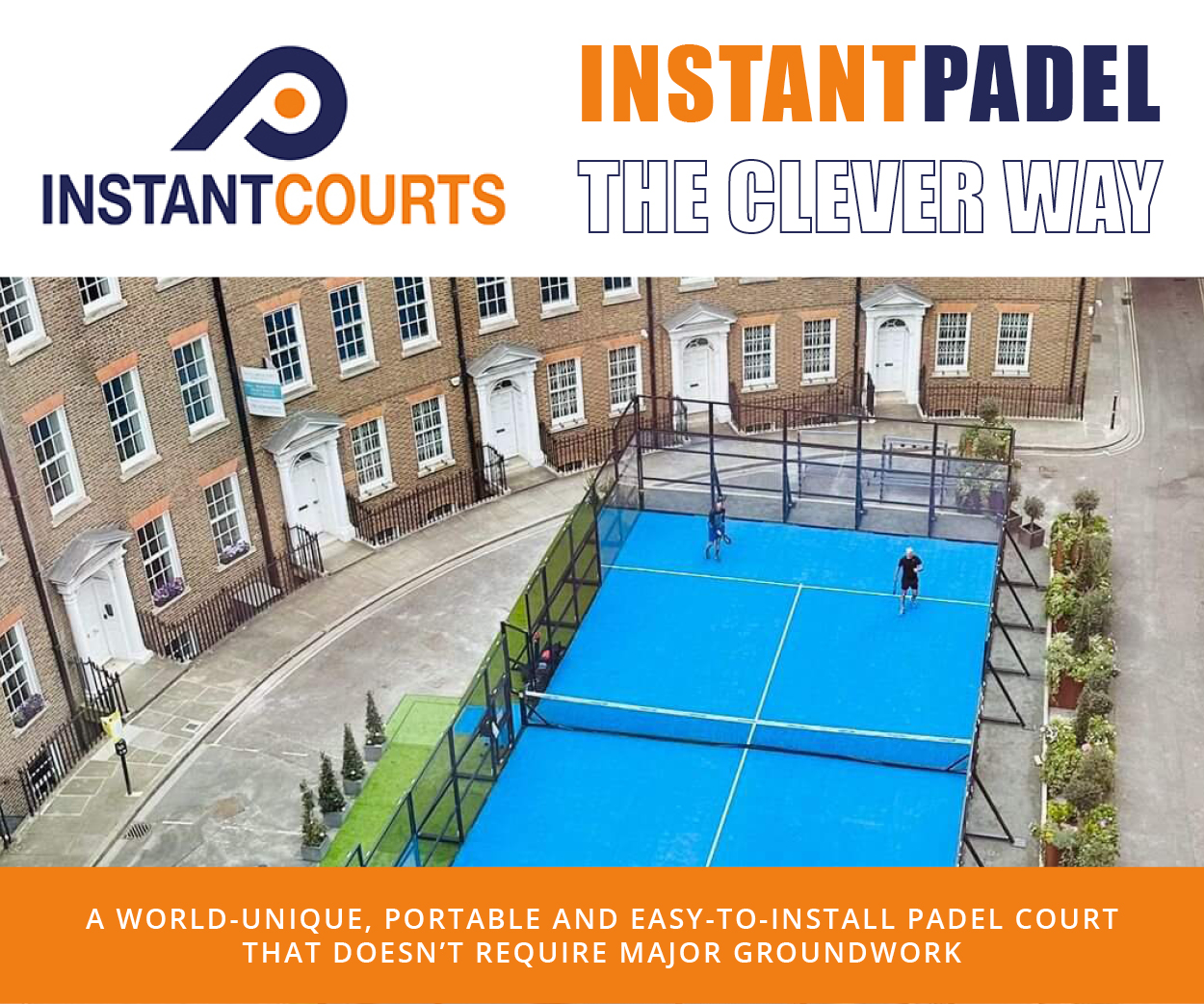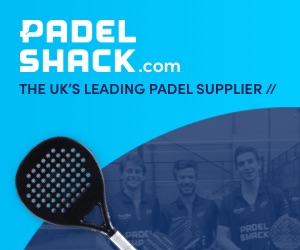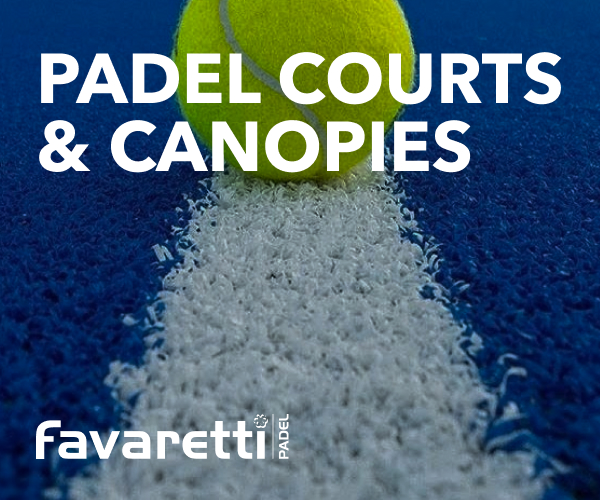Back in 2010, an Argentinian businessman named Gustavo Miguens came up with the idea of merging two of the most deeply-rooted sports in the country: padel and football. Thus, padbol was born.
Padbol, which also has similarities to volleyball and squash, has attracted the attention of football megastars such as Zlatan Ibrahimovic, James Rodriguez and Paul Pogba.
The rules of play are virtually identical to those of padel, with equal points, best-of-three-set matches and team play in pairs.
The dimensions of the pitch are 10 metres long and six metres wide, with four walls with a maximum height of two and a half metres. In padel, the dimensions are 20×10 metres, the side wall is three metres and the back wall is four metres high.
The ball has a circumference very similar to that used in football but weighs somewhat less than a normal football at between 380-400g. It must bounce a maximum of once in one’s own court, although the players can touch the net when shooting and have a maximum of three touches between them to pass the ball to the opponent’s court.
So far, the growth of padbol is slow but important, so says Nicolás Renedo, representative of Padbol Internacional, the organisation in charge of commercialising the sport with the aim of achieving a dream that is still far away.
He tells The Padel Paper: “In 2010 we opened the first court in La Plata, near Buenos Aires. Little by little we grew in Argentina and soon the sport spread to other countries like Spain thanks to social media. At the beginning they called our sport football-tennis, but now people identify what padbol means.

“We want to keep growing, as we are already doing in Middle Eastern countries like Saudi Arabia, Qatar and Kuwait. We still have a long way to go, but we have been doing things right for a long time and our dream is that padbol will be an Olympic sport one day.”
Renedo believes that in the coming years padbol will continue to grow in European countries, where Spain is a power house. The UK is joining this phenomenon, with courts opening this summer at the KickX Arena club in Surrey.
“Padbol has an advantage for countries where there is no Mediterranean weather and it often rains, and that is that it is indoor. It’s easy to coordinate because it only requires four players who don’t have to buy anything, as the clubs that have approved courts are the ones that give you the ball to play once you are there.
“Besides, it’s a very social sport where you feel like a protagonist because you score a lot of points.”
Within these areas of growth, November’s 2023 World Cup on Brazilian soil is a key event.
“There are 20 countries confirmed to participate and we expect more,” says Nicolás. “It will be the first time that countries such as Germany, Austria and the Arab countries will be competing… In addition to the South Americans and the European classics.
“It will be the biggest event in our history, as we will double the number of participants compared to the previous three editions.
“We will also have Brazilian player Oscar dos Santos as an official ambassador of the tournament and French legend Mathieu Debuchy will compete for his country.”
The latter join a long list of football names interested in padbol, such as James Rodriguez, Paul Pogba or the legendary Zlatan Ibrahimovic, who has an official court at his Zlatan Padel Center in Stockholm.
Despite the progress, Renedo recognises that there is still some way to go to make padbol a professional asset, with particular emphasis on the interest it can generate in the United States.
“There are no professional players – it is still an amateur sport,” he states. “There are some tournaments that give money and sponsors who name tournaments. Opportunities are starting to emerge. For example, we have Argentine players in Dubai working in clubs training new players in the sport.
“We are starting in the US market, where we think we can have a great diffusion due to its capacity to popularise new sports.
“People with big capital, important clubs and groups that want to invest and collaborate in the development of padbol, which usually has a public related to football but coexists in centres with padel and other similar sports, are starting to approach.”










































